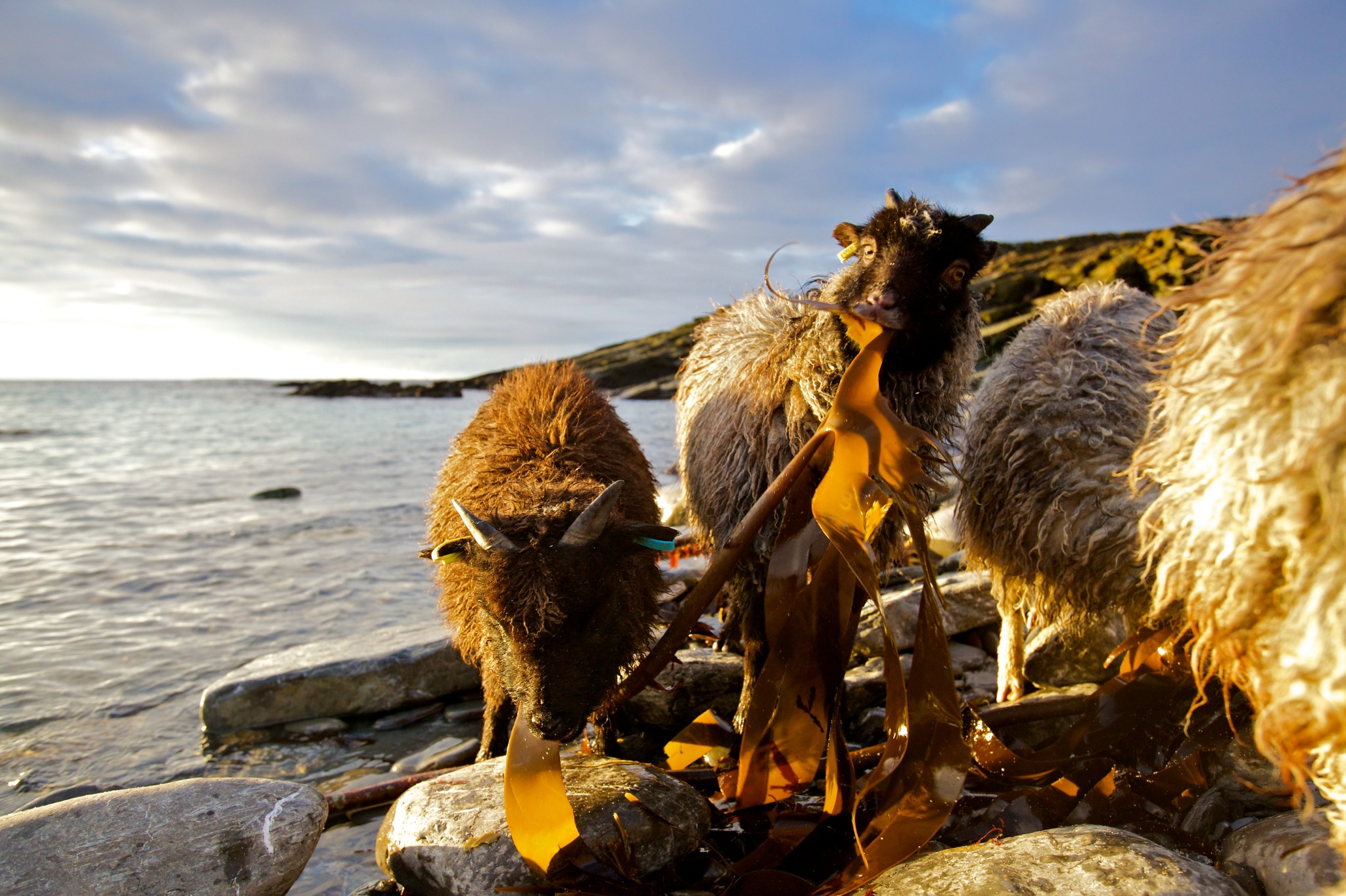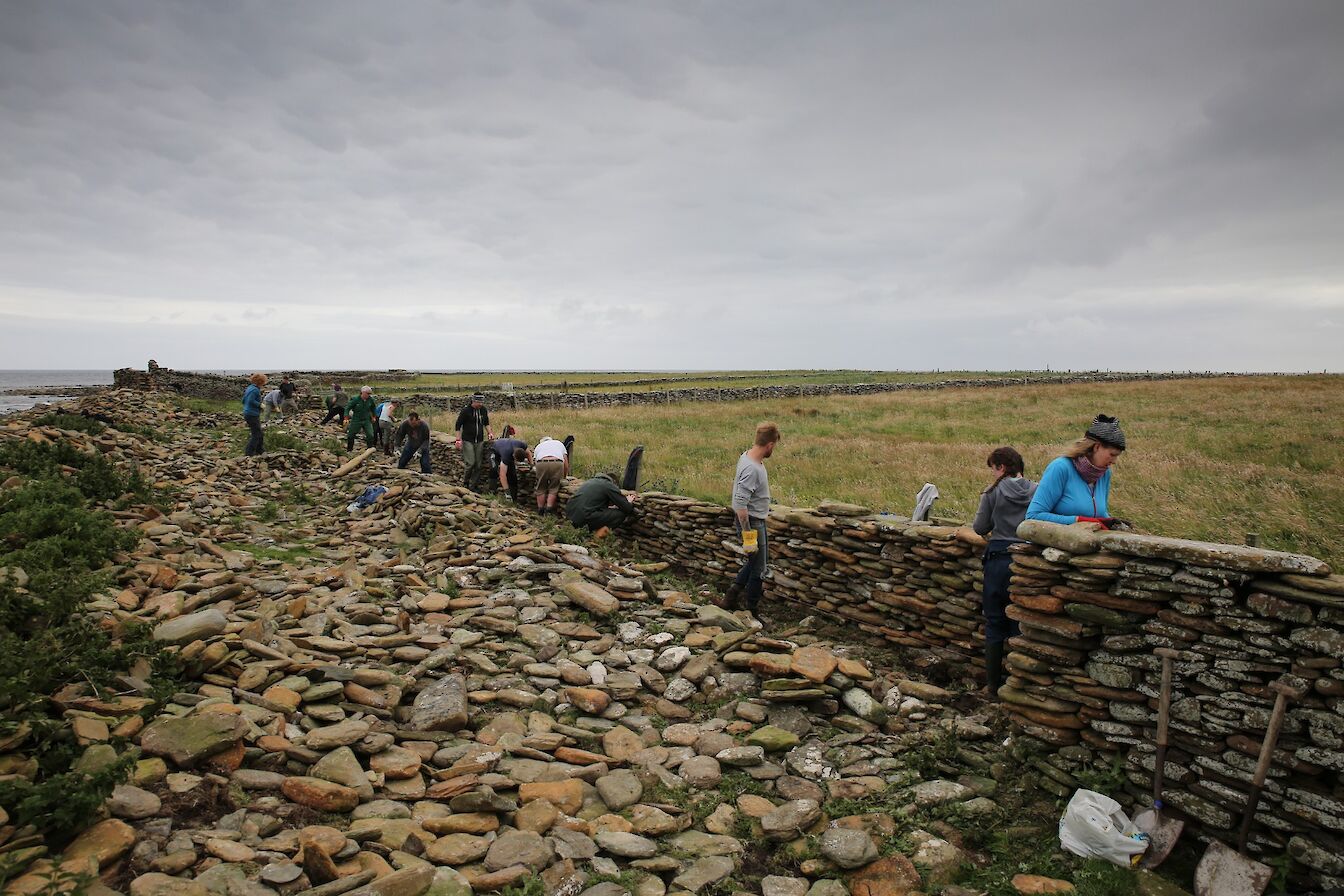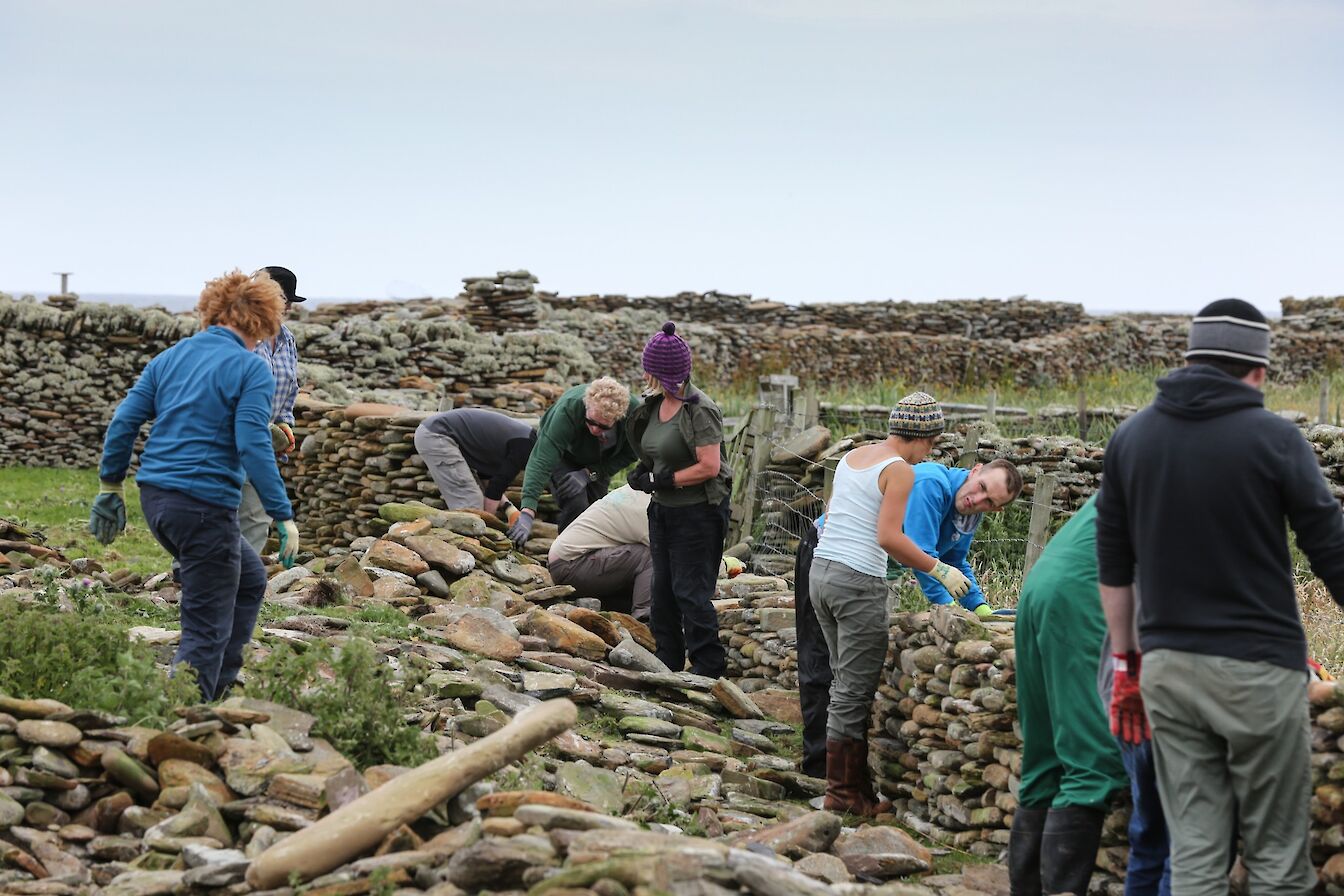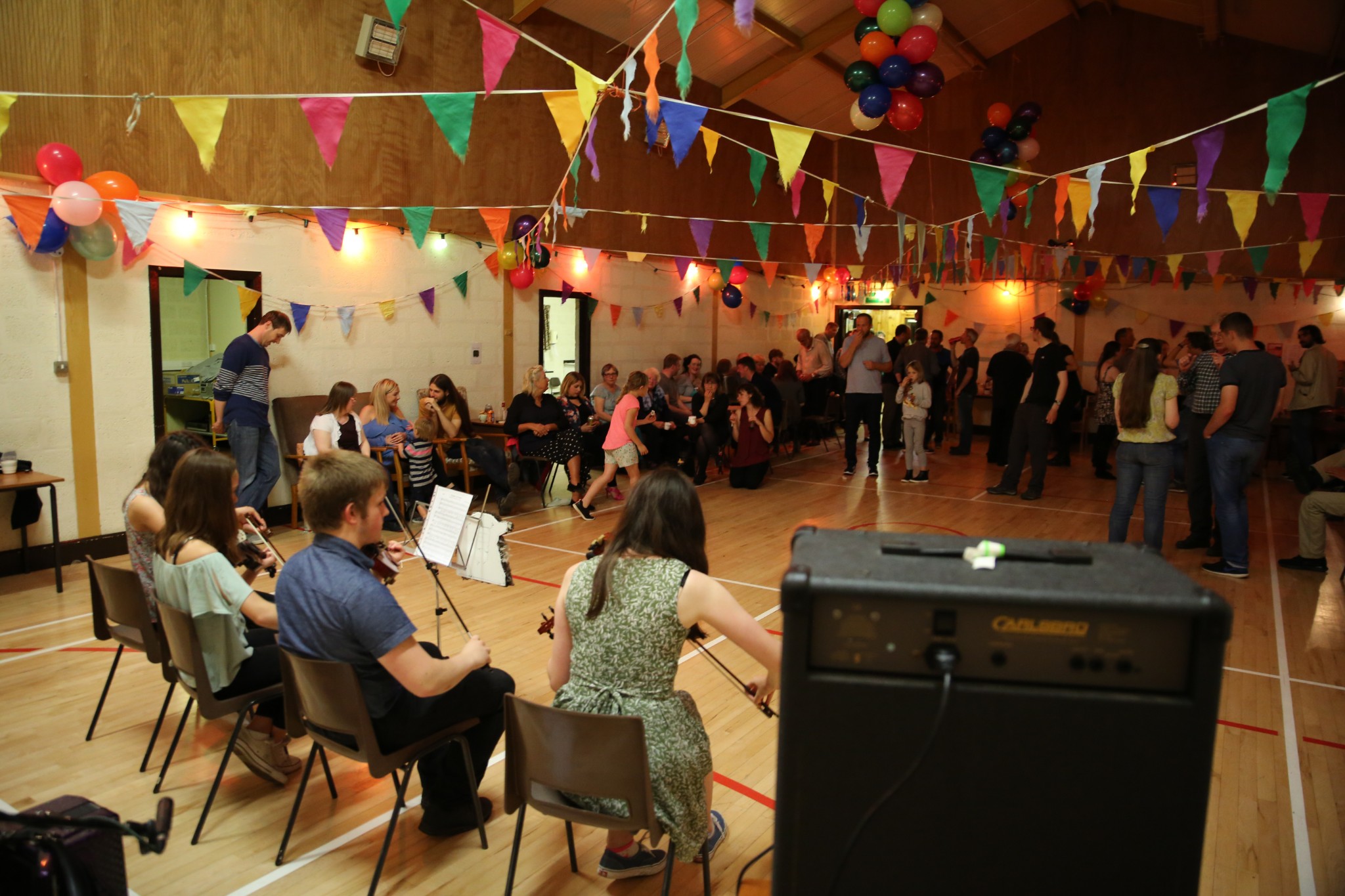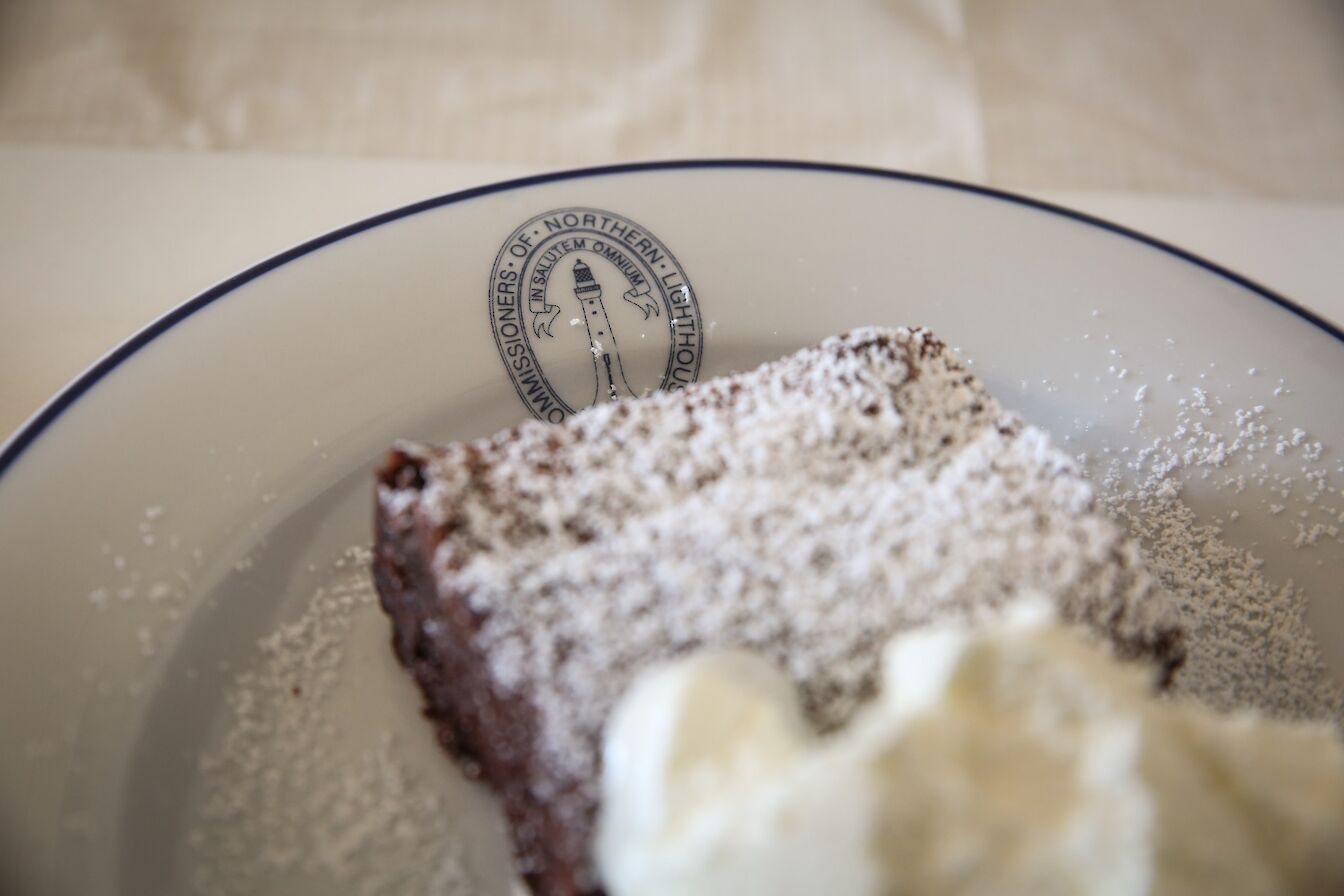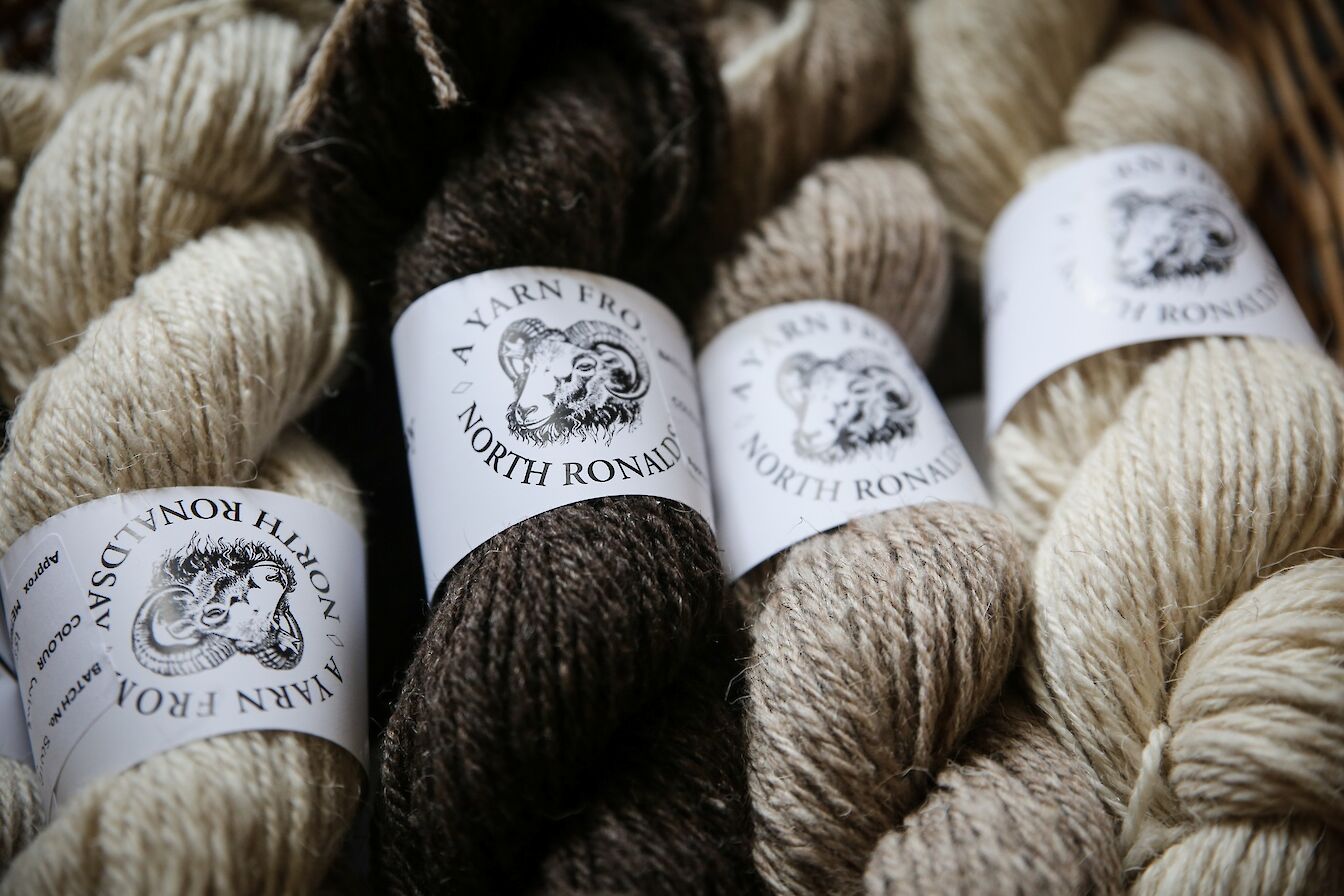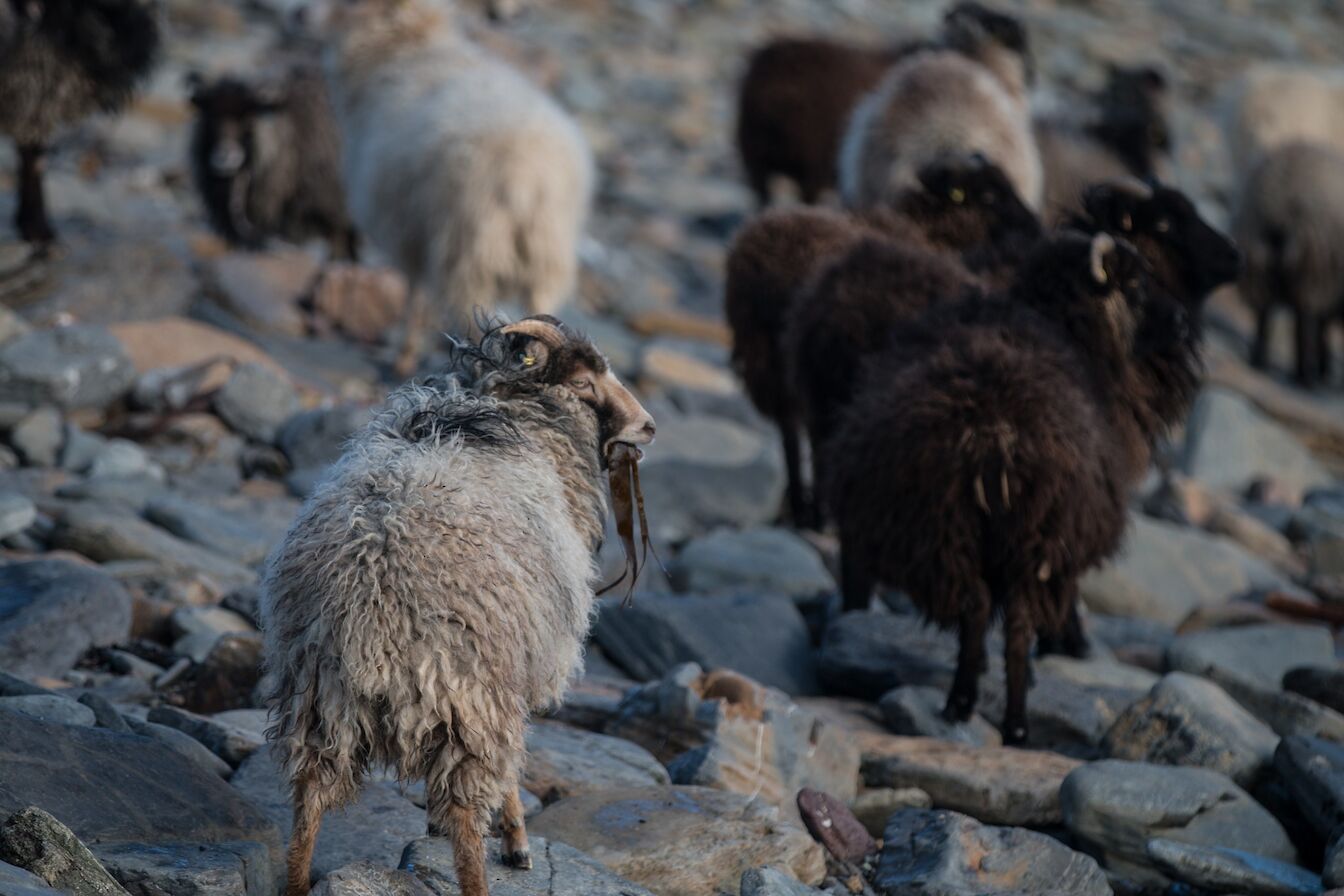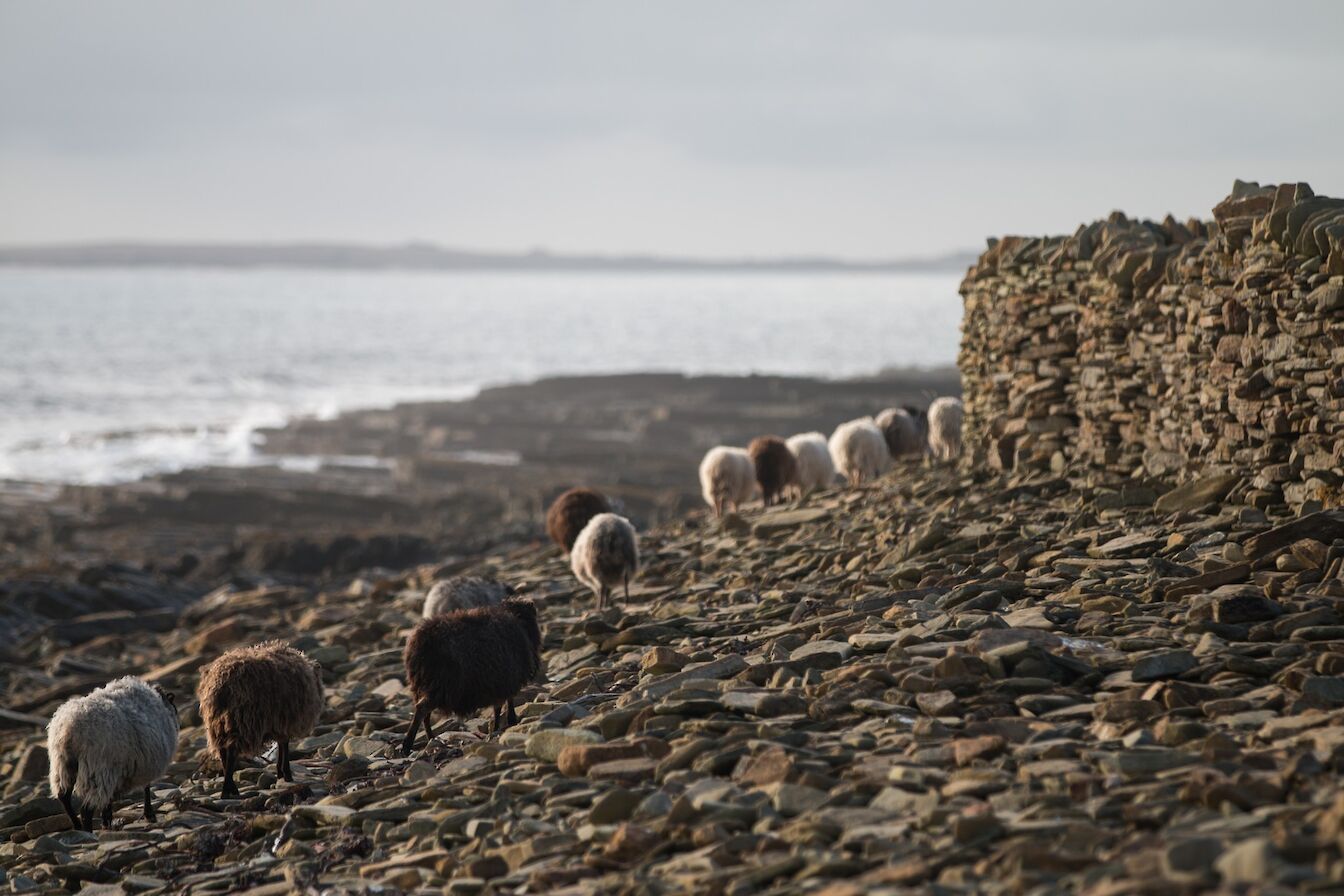What images come to mind when you hear the word festival? Thousands of people in wellies and eclectic outfits, crammed into a muddy field watching a band perform on a distant stage? Huge queues for oversubscribed chemical toilets? Acres of abandoned tents?
Maybe it’s books, beers, gardens or vintage cars that you think of. Or perhaps it’s something much darker, like The Wicker Man. But how about seaweed-eating sheep and a very long stone wall?
We’ve no shortage of first-class festivals in Orkney, covering everything from folk music and nature to science and storytelling, but the North Ronaldsay Sheep Festival is something truly unique within the islands’ packed events calendar.
Created as a joint venture between the enterprising North Ronaldsay community and The Orkney Sheep Foundation six years ago in a bid to raise awareness of the island’s ancient breed of shoreline dwelling sheep, the fortnight long SheepFest also gives people the opportunity to learn the practical skills associated with managing the 3,000 strong flock.
The sheep are contained on the rocky North Ronaldsay shoreline and prevented from grazing on local farmland – the breed is vulnerable to copper poisoning due to its diet - by a 1.8-metre-high, 20km long dry-stone dyke encircling the island. The dyke – originally constructed in the early 1830s and now a Grade A listed structure - also reduces the chance of gene-pool pollution of the flock through cross breeding with other sheep.
North Ronaldsay mutton is exported from the island and much prized as a delicacy, thanks to its distinctive flavour. Wool from the sheep is also processed locally and sold to knitters around the world.
Maintenance of the coastal sheep dyke, which gets damaged by winter storms each year, is a continual challenge for the small community on what is Orkney’s most northerly island. Volunteers taking part in the sheep festival help repair fallen sections of the wall, learning traditional building skills from local experts.
That might sound like an awful lot of work, but SheepFest is so much more than two weeks of unpaid hard labour, which is why it’s attracted volunteers from around the world since its inception.
“The rebuilding takes place during two three-hour sessions a day, one in the morning and one in the afternoon,” explains Kate Traill Price from the SheepFest organising committee. “Workshops, talks and events take place in the evenings after the dyke work has finished - it's a way of relaxing and celebrating a day's hard work.”
As you might have expected, the covid pandemic put paid to the 2020 festival and led to last year’s event being taken online, with organisers keen to minimise any risk to the island community.
With the 2022 festival running as normal, excitement is building on the island and there’s been no shortage of volunteers keen to return or take part for the first time.
“It feels fantastic,” says Kate, when asked to assess the pre-festival island atmosphere. “The festival committee and island residents did such an incredible job bringing the event online last year, but nothing beats hosting it in person. We’ve been so surprised and very pleased by the uptake of volunteers too.
“I think the pandemic has helped us in a way as people have started looking at things they can do within the UK,” she adds. “We were a little worried, having not held a proper festival for two years, that people might have forgotten about us, but it seems quite the opposite! So, we're very happy.”
This year’s festival, which runs between 1 and 12 August, will focus on three core aspects of island life – food, art and music – with events and celebrations built around the daily physical work on the sheep dyke.
“We always want to celebrate island culture and say, 'thank you', to our volunteers and island residents by showcasing the wealth of creativity and expertise within Orkney and North Ronaldsay,” explains Kate. “We’ve planned two traditional dances with local musicians playing, an umami tasting session using North Ronaldsay mutton, an art printing workshop, as well as felting and weaving, and of course we have our yearly quiz and football match. We hope that there's something for everyone.
“Of course, if someone just wants to snuggle up in bed with a book that's fine too - there are no requirements on people's time, and everyone is welcome to do what makes them happiest and most comfortable. This year volunteers will also have a two-hour lunch break instead of one hour so they can really take the time to explore the island if they'd like to. We want everyone to enjoy themselves.”
A new feature for this year’s event will be the distribution of special volunteer reward cards, created to encourage participation and reward people's efforts. Every volunteer, and islander too, will receive a card that will get stamped after each rebuilding session and redeemed for reward packs.
“The packs contain vouchers that can be used on the island,” says Kate. “Their face value will be reimbursed with funding from the Lennox Hannay Charitable Fund and every retailer and food and drink provider on the island has agreed to accept them as payment, so volunteers can grab a pizza, sandwiches, souvenirs or even a cheeky dram using the vouchers. The reward packs will also contain items such as postcards, stickers and other SheepFest merchandise. This is the first year we've tried this and we're really looking forward to seeing how it goes down.”
In terms of the core dyke work facing volunteers it should be business as usual, despite the covid enforced gap in hands-on festival assistance.
“The pandemic obviously affected the amount of rebuilding and maintenance that was able to be done as we lacked our usual group of volunteers for an entire two years,” reflects Kate. “This was mitigated somewhat by the employment of two sheep dyke wardens by the North Ronaldsay Trust but meant work on the extra amount of dyke we would usually hope to repair didn't happen. Luckily, the storm damage over the pandemic wasn't as bad as it's been in the past, so we've not been put too far behind in that respect.”
Volunteers this year will be guided by a team of sheep dyke supervisors, made up of the wardens and other trained island residents. They’ll lead and guide volunteers with the rebuilding, offering advice and insight on technique.
“Although it's a group activity, the rebuilding is strangely immersive and you kind of go into your own little zone,” says Kate. “It's very relaxing and rhythmic, with the sound of the sea and the stones being placed - so while the supervisors will be present, it’ll still feel very calm and personal to each builder.”
Demand for volunteer places has been high, so if this festival with a difference sounds like something you’d like to be part of, don’t delay booking a slot through the SheepFest website.
“We don't have as many international volunteers this year as we have had in the past, which is most probably a hangover of the pandemic, but we do have people coming from all across the UK, which is great,” concludes Kate. “It's always lovely seeing people discover the island for the first time, and we also have some regulars joining us again who've been coming for years. It makes for a good mix of people.”
Find out more about festival via the official website.
The North Ronaldsay Sheep Festival committee would like to express its grateful thanks to funders and supporters: The Orkney Sheep Foundation, The North Ronaldsay Trust, The Lennox Hannay Charitable Fund, Awards For All Scotland and Voluntary Action Orkney.
